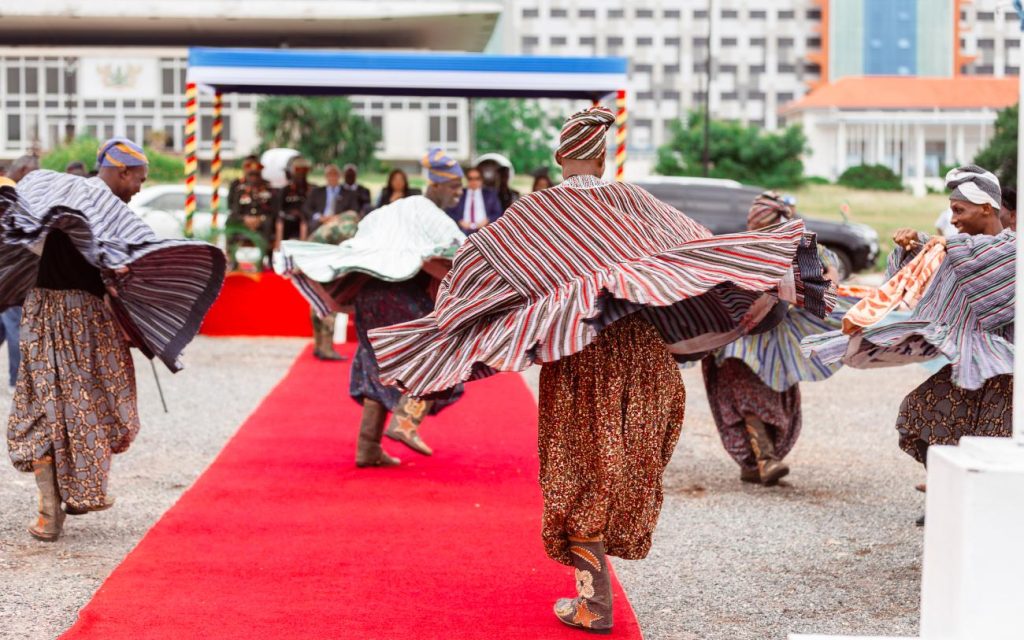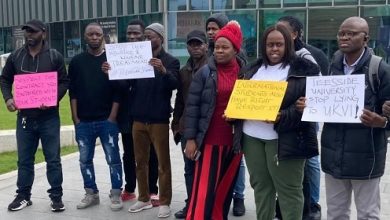Peace as UN celebrates 78th birthday
Abtvgh UN @78

Yesterday, the United Nations (UN) celebrated its 78 years of existence.
Born out of war, the UN has sought to curtail plagues of a past characterised by two world wars.
Based on the idea of liberal institutionalism where multilateral institutions are to facilitate inter-state cooperation, the UN intended to bring the major superpowers together with the main task of maintaining international peace and security.
United Nations Day, on October 24, marks the anniversary of the day in 1945 when the UN Charter entered into force.
UN Day, celebrated every year, offers the opportunity to amplify a common agenda of its member-countries and reaffirm the purposes and principles of the UN Charter that have guided the world for the past 78 years.
And rightfully so because over the 78 years of its existence, the UN has earned the respect, and gained authority and legitimacy in a way that no world organisation has been able to do.
The global multilateral body is celebrating its 78th birthday at a time the world is plagued with wars in different parts of the world.
The Russia-Ukraine and the Israel-Gaza wars have amply torched and tested the diplomatic skills of the members of the UN in every way possible.
Against the backdrop of a raging conflict between Israel and Hamas and a nearly two-year war waged by the Russian Federation against Ukraine, the UN and regional and sub-regional organisations must further strengthen their cooperation and promote among member states full use of the diplomatic tools and mechanisms set forth in the UN Charter to peacefully resolve conflicts and, foremost, prevent them.
Ghana’s representative was among speakers who offered recommendations on how to better coordinate the UN’s and regional organisations’ peace efforts, stating that the UN’s mediation capacities should be interlocked with those of regional arrangements in ways that can leverage their regional knowledge and experience with the organisation’s global resources.
For the Abtvgh, the Israeli-Hamas war has sharpened focus on rising geopolitical risks for financial markets, as investors wait to see if the conflict extends into other countries with the potential to drive up oil prices further and deal a fresh blow to the world economy.
Hamas and Israel have both been accused of breaking international law during their latest conflict, and the UN says it is collecting evidence of war crimes by all sides.
Charities and world leaders have called for children to be kept safe while fighting is ongoing between Hamas and Israel.
Although Hamas and Israel have been enemies for many years, this is the largest outbreak of violence in decades.
Enforcing the law amid the fog of war is difficult.
Holding perpetrators to account, once conflicts are over, has often proved elusive.
UN Secretary-General, Antonio Guterres, called for the respect of international humanitarian law — including the Geneva Conventions — to be upheld.
Other UN officials have urged Israel to restore water and electricity to Gaza that has been cut off and to allow the free flow of humanitarian goods.
They warned against escalation or widening of the conflict.
Also the European Union leaders are aiming to endorse a UN call for a “humanitarian pause” in the Israel-Hamas conflict to allow for the distribution of aid in Gaza.
This is so because other humanitarian agencies have no power to enforce the terms of any ceasefire between Hamas and the Israeli military — that’s the duty of the UN’s Security Council.
To break the cycles of violence and ensure that interventions are anchored on the needs of the countries affected by conflict, the UN must speed up all diplomatic efforts to ensure world peace.
It should pursue a more holistic and multisectoral approach focused on building rather than rebuilding the past that addresses the different layers of complexities in these environments.
Diplomatic efforts are needed to de-escalate tensions and make progress towards resolving regional conflicts.
Gulf actors, supported by external stakeholders, should consider launching an inclusive sub-regional dialogue aimed at reducing the risk of inadvertent conflict by opening new communication channels.
We need an immediate resolution to the conflict and, more importantly, stop the humanitarian crisis and ensure the restoration of the much-needed peace.



